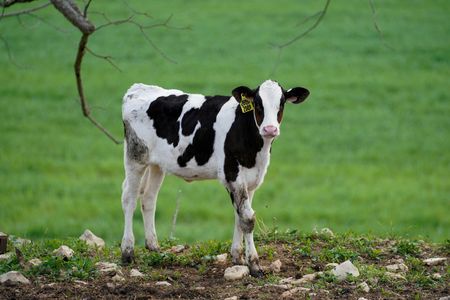By David Lawder
WASHINGTON (Reuters) – Canada must let U.S. processors of cheese, ice cream, yogurt, milk powder and other dairy products have access to its import quotas to resolve a second U.S. dairy trade challenge, Washington’s new agricultural trade boss told Reuters.
Doug McKalip, chief agricultural trade negotiator for the U.S. Trade Representative’s office, told Reuters on Thursday that Canada’s second attempt at allocating dairy tariff quotas shut out most of the firms, providing only a fraction of the access promised in the U.S.-Mexico-Canada Agreement on trade.
“Under USMCA, Canada agreed to open up its market to U.S. dairy products, and dairy farmers expect to have the market access benefits they were promised,” McKalip said.
USTR on Jan. 31 requested a USMCA dispute settlement panel for the second time, arguing that Canada’s revised quota allocation rules failed to fix problems that prompted an initial dispute panel to rule last year that Canada’s practices violated its USMCA obligations.
Canada’s trade minister, Mary Ng, in response has promised to defend the supply management system and has accused USTR of trying to “re-negotiate” the terms of the USMCA deal through the dispute settlement process.
The first panel had ruled that Canada had illegally reserved most of its quotas for imports of raw milk by Canadian processors, preventing Canadian retailers or food service providers from importing many higher-value U.S. dairy products.
McKalip said Canada’s quota revisions “fell again, far short of being meaningful market access.”
Separately, the farm trade official, confirmed into his job by the U.S. Senate on Dec. 23., told Reuters that he asked Mexico to explain the science behind its ban on genetically modified corn, a step towards another USMCA trade dispute case.
As part of the USMCA trade deal, launched in 2020, Canada agreed to provide U.S. dairy producers access to about 3.5% of its $17 billion annual market and allowed for increased U.S. exports of skim milk and milk proteins to Canada.
The deal kept in place Canada’s decades-old supply management system, which restricts domestic production of dairy, eggs and poultry to stabilize their incomes and protect them from import competition with high tariffs.
The tariff-rate quotas are meant to allow specified volumes of dairy imports duty-free and impose tariffs when the caps are reached.
But McKalip said Canada is still denying retailers and food service firms access to the quotas and needs to open them to all buyers and sellers.
“It should work the same way that it does for almost any commodity and any type of relationship of this kind, which is that they truly do provide market access and that dairy farmers and various dairy products here in the U.S. are able to compete and be part of selling to willing buyers,” McKalip said.
“We’re not asking them to do something they didn’t already agree to when they agreed to the provisions in USMCA,” McKalip said of the U.S. position.
(Reporting by David Lawder, editing by Deepa Babington)

